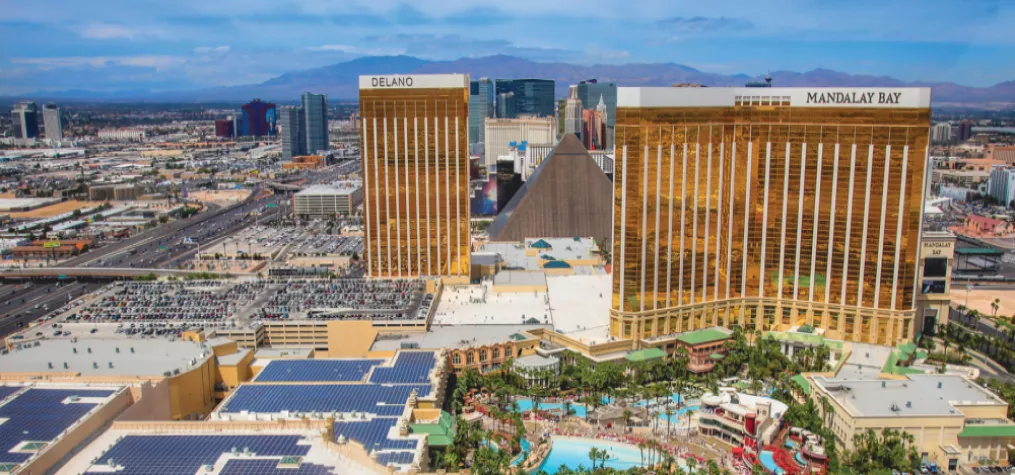If you’re like me, you are probably tired of and confused by reading and listening to different opinions about the metaverse these days.
From Facebook changing their name to Meta to Disney’s CEO saying that Disney+ will be their own metaverse as well as Microsoft paying 70 billion dollars for Activision as part of their metaverse strategy, the list of big tech and media companies investing billions of dollars in the "metaverse category" continues to grow exponentially.
So what is the metaverse? Today, it is a series of different concepts but still hard to explain. Broadly speaking, the technologies that make up the metaverse include, among others, virtual reality (VR) and augmented reality (AR), combining digital and physical world interactions while simultaneously including the digital economy, and potentially very soon, some gaming experiences like Fortnite, a digital concert, a digital meeting with 3D avatars and even holograms, with the list going on and on.
At this point, if you are a marketing, media or events person, you probably already know that some (or many of these use cases) could dramatically change your job, business and industry.
Fad or Game-Changer?
Is this metaverse thing just a buzzword or great marketing from some tech companies? Who knows, only time will tell. But I think we should pay attention. In a way, not paying attention to Netflix was not a good thing for Blockbuster, and not paying attention to the early days of social media was not a good idea for many media industry giants. If this metaverse thing is real, and we learn fast and become early adopters, our chances of improving our live event experiences could be better, but if it's just a buzzword and short-term thing, we could simply go back to our comfort zone.
If you know me or my company, you probably know that I've focused on live events, media and tech for the last three decades. During this time, I’ve seen some interesting changes and learned some hard lessons. When I co-wrote “Reinventing Live” in 2020 during the early days of COVID-19, we never thought that this pandemic could last for so long and change the world, so many lives and businesses in such a dramatic way. But we knew back then, and even more so today, that the live events industry, a multi-trillion-dollar global business, including sports, music, trade shows, festivals, conferences, etc., would be impacted and needed to be reinvented. There are many technologies affecting the way that live events could and should be reinvented, but the metaverse as a concept could be one of the biggest game-changers.
Why? Let's think of some potential case studies. One of the industries we should all focus on, learn about and analyze if we are organizing traditional events is gaming. Why gaming? If you want to understand the perfect virtual event, you should watch a Twitch stream and analyze the way those communities are interacting or simply watch your kids playing a Discord gaming party. You may also take a look at the way that Peloton Lanebreak could be interacting with their new product in a combination of a fitness, gaming and metaverse sort of environment or how Tony Robbins reinvented his live events business.
Technology and the Reinvention of Events
After decades of comfortable and sustainable growth, the live events industry was disrupted like never before due to COVID-19. Now, after only a couple of years of learning and experimenting, we realized that technology could be our best partner for reinventing this massive industry as we move into the future. I'm convinced that we saw a couple of decades of innovation in less than two years around the live events industry, and it is clear that the pace of innovation and technology engagement is certainly not going to slow down. On top of this, we see all big tech companies (Meta, Microsoft, Apple, Amazon, etc.) investing billions of dollars into metaverse-related technologies and educating the whole world about this new thing—potentially, the next big thing.
I’ve mentioned many times that I'm convinced that face-to-face events are not going away. But now, I'm also convinced that virtual and hybrid events are going to stay around and play a significant role in the future of our industry. It's too early to be very dogmatic in this concept, but I speak with smart entrepreneurs and investors on a daily basis who are actively building new concepts and ideas combining offline and online event experiences using some of these technologies.
I asked the question, “Metaverse and Live Events, What's Next?” as the title on this blog, and I certainly don't have a definitive answer, but I'm making a conscious effort to keep learning and finding different examples coming from outside the "classic events world" and understanding how these technologies could have a positive impact on the live events industry. I shared some of those examples here around gaming or classic events like Tony Robbins’ new way of organizing his events. Are these examples going to change post-COVID? Probably not. Or they probably will combine the best of both worlds: a great face-to-face, in-real-life experience in parallel to virtual and hybrid activations. What really matters is that this time, we should pay attention, since, as businesspeople, we certainly don't want to be the next Blockbuster.
Don’t miss any event-related news: Sign up for our weekly e-newsletter HERE, listen to our latest podcast HERE and engage with us on Twitter, Facebook and LinkedIn!


